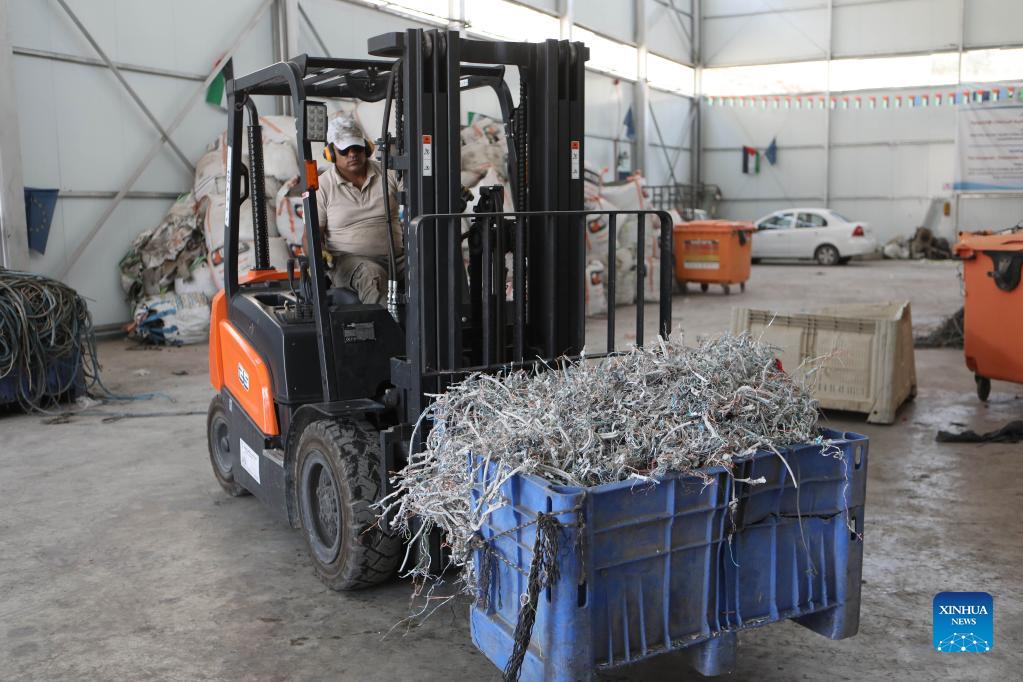
A worker is seen at an electronic waste recycling factory in Idhna village in the West Bank city of Hebron, on Aug. 26, 2021. Instead of burning the electronic waste (e-waste) which has been plaguing the West Bank city of Hebron, a Palestinian factory started recycling tons of them, making change happen. (Photo by Mamoun Wazwaz/Xinhua)
by Sanaa Kamal
RAMALLAH, Sept. 8 (Xinhua) -- Instead of burning the electronic waste (e-waste) which has been plaguing the West Bank city of Hebron, a Palestinian factory started recycling tons of them, making change happen.
For years, large amounts of e-waste, including refrigerators, computer monitors and cell phones, have been flowing into the village of Idhna, west of Hebron, contaminating its soil and making it an electronic graveyard that received 200 to 500 tons of waste daily.
According to Palestinian officials, at least 60 percent of the e-waste piled up in the Palestinian village came from Israel. For years, local Palestinians have been burning the waste to make a living.
Meanwhile, the village houses at least 100 workshops, with each of which hiring 12 to 38 workers to burn the e-waste in a bid to obtain valuable metals such as nickel, copper and lead.
Determined to renovate the old method of e-waste disposal, Abdul Rahman al-Tomaizy, an environmental activist, together with three other activists, established Hebron's first factory that recycles e-waste in an environmentally-friendly way.
"Inside the factory, we have a machine separating the materials, and then it sorts them into plastic, aluminum, iron, copper and other materials," al-Tomaizy said.
"After that, we deliver the sorted materials to workers. They will distribute them to relevant factories," he said, adding that the factory sorts 1 ton of e-waste per day and sells them to various industries across the West Bank.
However, the current production of the factory is far from being able to satisfy the local market, said Mazen Sulaimiya, supervisor of the factory. He hoped to obtain more machines that will enable them to produce 5-10 tons of recycled materials per day.
"For many years, our area has been a dumping ground for electronic waste, which prompted many Palestinians to rely on it to stay afloat, but they were not organized and were harming the environment," he added.
He explained that a 2017 study revealed that approximately 2,500 Palestinian families from the villages of Idhna, Al-Koum, Deir Samet, and Beit Awa, located in the west of Hebron, have been reliant on this sector.
"Because of the continuous burning of electronic waste, our trees, especially olive trees, have turned black," said Muhammad Sulaimiya, one of the hundreds of Palestinian farmers affected by the long-time e-waste burning.
Moreover, the olive oil production has also decreased as every 100 kg of olives in the land adjacent to the burning site produce only 7 kg of oil, compared to 19 kg in other areas, said the 46-year-old farmer, currently working in the new factory.
Sulaimiya is hopeful that the factory will bring about improvement to environment so that he would be able to plant olive trees again. Enditem




